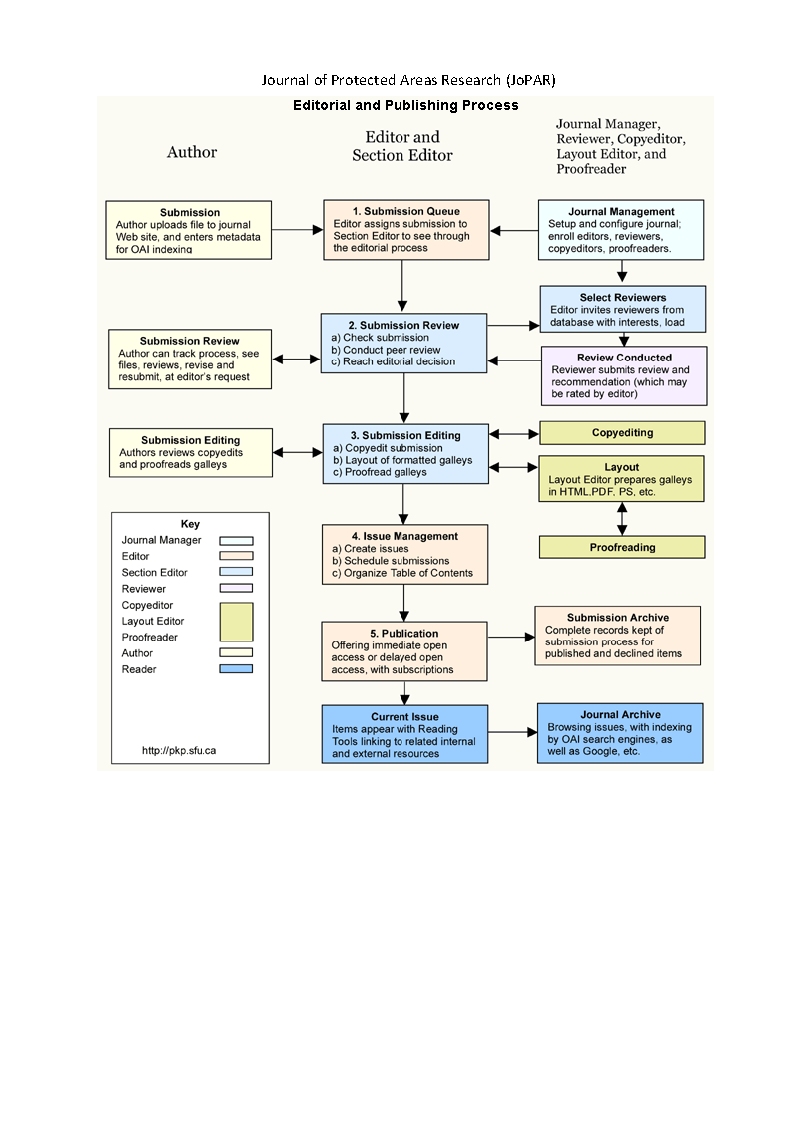About the Journal
Journal of Protected Areas Research
e-ISSN: 2822-2733
The nature and environmental conservation approach is a moral philosophy and conservation movement that focuses on protecting species from extinction, preserving and restoring their natural habitats, improving ecosystem services, preserving biodiversity, protecting and sustaining cultural sites.
Since the day he came to settle life, instead of living in harmony and balance with nature, man has tried to dominate, exploited, used, changed, irresponsibly and excessively shape nature. In the last 50 years, human beings have negatively affected nature and natural processes as a result of their multifaceted activities, and as a result of the increase in greenhouse gas emissions, it has caused an average of 0,5°C warming.
However, it has led to a decrease in biological diversity, an increase in environmental problems, an increase in natural disasters, a decrease in ecosystem services, etc. The basic approach to climate change, which is of vital importance for natural life and humanity on a global scale, includes determining the possible effects and level of climate change, how to combat it, adaptation policies, and what measures to take.
For this purpose, PROTECTED AREAS are accepted as a powerful tool and important life insurance in terms of their richness in biodiversity, their ability to capture and store carbon in the atmosphere, and to ensure the sustainability of natural systems. Protected areas not only provide biodiversity conservation (protection of species and ecosystems) but also provide essential ecological, social, and economic services such as clean water, carbon storage, genetic reservoirs, disaster reduction, soil stabilization. They also offer important opportunities for the protection and sustainability of tangible and intangible cultural heritage.
· Today, protected areas with natural and cultural characteristics are increasing numerically and spatially. However, there are multifaceted problems in legal, ecological, social, cultural, economic, planning-design, management and political dimensions related to protected areas on a national and international scale. For this reason, it requires research, association, discussion and sharing on an international scale, taking into account all dimensions of protected areas.
· In this context, the publication of a journal called JOURNAL OF PROTECTED AREAS RESEARCH (JoPAR) was considered and the first issue was published.
· JoPAR targets all components related to the conceptual and theoretical framework, legal situation, planning, design, implementation, management, scientific, artistic, ecological, social, cultural, economic, philosophical, tourism and technology for protected natural and cultural areas. In other words, JoPAR is an online journal covering all aspects of nature conservation. JoPAR aims to stop the degradation of the planet's natural environment, protect it and build a future where people live in harmony with nature.
· Journal of Protected Areas Research (JoPAR) is the scientific, peer-reviewed and international e-journal. JoPAR is published twice a year.
JoPAR's mission is to publish an international, scientific, quality, and original journal, to provide access to current research to stakeholders, and to raise awareness of nature/environmental protection.
The journal mainly addresses the following topics; Conservation and Protection, Preservation, Natural Protected Areas, Cultural Protected Areas, Ecology, Biodiversity, Cultural Heritage, Tourism, Recreation, Visitor Management, Sustainability, Wildlife, Wild animals & Wild plants, Global Warming and Climate Change, Ecosystem, Landscape Repair (Restoration, Rehabilitation, Reclamation), Urban Conservation & Revitalization, Rural Conservation & Revitalization, Human Health& Well-being, Archaeology, and others.....
Journal of Protected Areas Research (JoPAR) is open access journal. JoPAR has adopted the policy of providing open access with its publication. Open access increases the global exchange of information and has beneficial consequences for humanity. Accordingly, JoPAR supports the Budapest Open Access Initiative, which was adopted on 12 September 2012. Policies determined under the Budapest Open Access Initiative are available at https://www.budapestopenaccessinitiative.org/boai-10-translations/turkish-translation
There are no article submission or publishing fees for authors on JoPAR; Also, there are no shipping fees or page fees.
The journal uses the double-blind peer-review process.
All works published in the journal comply with the provisions of the “YÖK Scientific Research and Publication Ethics Directive” and the relevant legislation and ethical principles published by the Publication Ethics Committee (COPE). ETHICS COMMITTEE PERMISSION will be mandatory for articles to be published in the journal, for publications starting in 2020.
A maximum of 15% "Similarity Rate" is required using the TURNITIN program (https://www.turnitin.com/tr).
JoPAR is licensed under a Creative Commons Attribution-ShareAlike 4.0 International License. (https://creativecommons.org/licenses/by-sa/4.0/.
Publisher: Karadeniz Doğa ve Çevre Derneği (Blacksea Natura and Environment Association)
Address: Ahmet Emin Fidan Kültür ve Araştırma Merkezi, Evkaf Mah. Evkaf Sok. No: 34/B Fatsa ORDU



